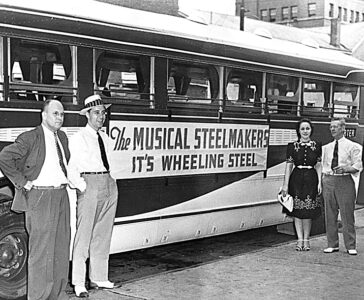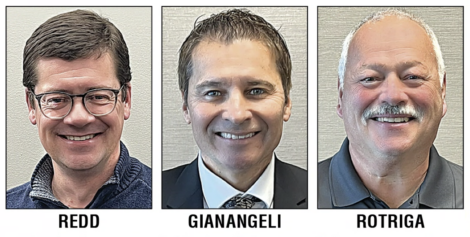Lines Between Alcohol, Non-Alcoholic Beverages Continue to Blur With New ‘Hard Mountain Dew’

photo by: Shelley Hanson
Packages of the new Hard Mountain Dew, which contains 5 percent alcohol by volume, are shown at a local store. Parents should be aware of the new product and not accidentally allow their children or teens to drink it.
WHEELING – The lines between non-alcoholic and alcoholic drinks have blurred on store shelves during recent years and now with another alcohol-infused drink – Hard Mountain Dew – it appears to have blurred even more.
People may have noticed the colorful cans on store shelves or watched a commercial on TV or the internet recently promoting the product. The drink, which is being made and marketed by the Boston Beer Co. contains non-caffeinated Mountain Dew soda and has 5% alcohol by volume.
Because of the similarity in name to the original soda, along with the colorful cartoon-like labels and fruity flavors, parents need to make sure the product does not get into children’s or teens’ hands. And if youth see such advertisements, parents should talk to them about why the product is for adults 21 and older only.
Howard Gamble, administrator of the Wheeling-Ohio County Health Department, said that, as with any alcohol-containing product, public health reminds people that such products are only intended for adults 21 and older to drink. And even then moderation is recommended if consuming it.
“There are a few public health concerns. First is the youth consumption of any soda, especially as a primary drink, rather than milk, water or other more beneficial drink (i.e. juice) by youth and adults,” he said.
“Second is the blurring of a traditional soda product, non-alcoholic drink, and an adult alcohol drink using the same non-alcoholic product. I have seen concerns raised among consumer groups regarding the placement of this new product in stores and other venues.
“Mt Dew has been a traditional soda product, marketed to the public as a soda drink. Most consumers know of the health issues linked to the traditional soda drink and these issues may have led to some of its sales success among youth and young adults.
“Our advice for any consumer or parent regarding this product would be that it is a new adult alcoholic product and is intended for an adult market.”
Regarding adults drinking the product, Gamble said Hard Mountain Dew at least does not have the sugar and caffeine like the traditional Mountain Dew pop.
“The product(s) do have a limited distribution and are part of the larger ‘hard seltzer’ drink movement,” he added.
When contacted about the marketing of the product and youth, PepsiCo declined to comment.
“This question is for the Boston Beer Company who makes and markets the product. Please reach out to BBC directly,” said Jessica Sigelbaum, spokeswoman for PepsiCo.
Taylor Jette, spokesman for Boston Beer Co., said his company’s marketing of the Hard Mountain Dew “adheres to the industry’s established marketing and advertising codes.”
“Per the Beer Institute’s guidelines, ads only appear on platforms where the audience is comprised of no less than 73.6% legal drinking age adults,” Jette said.
For example, he said, on YouTube, “all of our content is age-gated for those accounts 21+ and restricted against child-centric accounts.”
Regarding the product’s packaging, point of sale materials and in advertising, Jette said the product “clearly communicates the product is alcoholic and for those 21+.” This includes using the word “hard” at the top of the packaging along with 5 percent ABV on the can. The graphics, he said, are “adult-oriented” and “significantly different” from regular non-alcoholic Mountain Dew. Also, the product is supposed to be placed “within the alcoholic beverage display units at retailers.”
A quick check for the product at a local grocery found packages of Hard Mountain Dew beside the dairy cases and not near the other alcohol-containing drinks.
Meanwhile, regarding the regulation of such products, the Food and Drug Administration said it is not the regulating body, rather the Department of Treasury’s Alcohol and Tobacco Tax and Trade Bureau is.
“The Department of the Treasury’s Alcohol and Tobacco Tax and Trade Bureau (TTB) regulates aspects of alcohol production, importation, wholesale distribution, labeling, and advertising,” said Janell Goodwin, spokeswoman with FDA.
The TTB could not be reached for comment at press time.



